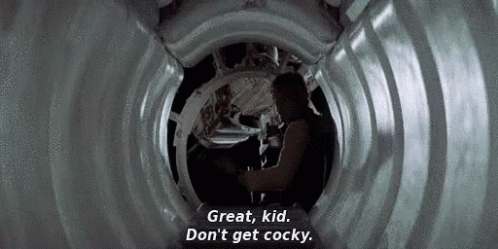 |
| A b-day gift from Mrs. Spew |
This week is another Stevefest as I hit another milestone age--half way through my 50s. The funny thing is that my body is definitely feeling it with reflux and strained calf (which has kept me out of ultimate for a couple of weeks) and other ailments, but mentally/emotionally, I don't feel like 55 or even a grownup on most days. This has been the saddest year of my life but not the hardest.
Staying at home has not been hard, nor has been baking up a storm. Taking care of a newborn that didn't like eating and then within two years needed surgery--that was hard. Sleep deprivation that accompanied that was hard as was the intra-marital friction that came along with that. But it was not a sad period. This past year h
as been easy on us in so many ways--that none of my immediate family has been harmed by COVID and we have not lost money in the process. But we have lost a towering family friend, a friend from grad school, a friend from the IR world, and a cat. And I have been so sad and frustrated for my friends who have suffered far more and for my friends whose kids have had their lives put on ice for more than a year. We were lucky in that our kid was out of school, that the temporary furlough didn't cost her money, and, that her deferred search for a new job finally paid off this week.
It has been a year of anger--of failures to lock down and to mask and then of failures to roll out the vaccine and now failures to distribute the vaccine to the rest of the world and the refusals of way too many to take the vaccine. Similarly, the election should not have been so close, and the Dems' hold on power should not be so fragile--the tie in the Senate, a seat or two in the House. And Jan 6th.
But it has also been a year of appreciation--for the friends I have, for the tech that has allowed me to connect regularly with folks from across the profession and from the distant past, for family that have drawn closer together in this crisis, and for the cool place I live.
Last year's Stevefest post referred to a meeting I had that caused me to dress up (the only time I wore a complete suit in the past year--zoom means never having to wear suitpants) and to thinking about CDS Vance's legacy. Oh my, the past year has sure put all of that in a different light. I am proud of the year the CDSN had in providing insights and advice on the abuse of power/sexual misconduct scandal in the Canadian Armed Forces. We had ample opportunity to demonstrate our independence from DND/CAF this past year as we have been quite critical--for example my posts here and my op-eds.
Anyhow, this Stevefest has been different for a couple of reasons. No comedy shows, only one movie where I went solo. We did eat out three times and once was even indoors (because I messed up the reservation). And I embraced the amazon moment, getting my own gifts from sports socks to an oculus. I am reaching the age when my friends are discussing retirement at our online poker games and when I think about how much longer I will work past 65--at least one year since I won't hit 20 years at Carleton until 66 and there is a pension here (really!).
 |
| Dinner beside the Rideau River was delightful. |
Overall, I am very grateful as I mark this birthday. I know that I am lucky personally and professionally. I have a great job in a good place, my family is mostly doing well, and the facebookization of birthdays reminds me of all the friendships I have built over the years in all of the places I have lived and studied and worked and played. And, yes, I get to see my daughter and the rest of my family very soon, and I am guessing the hugs will last much longer this time around. It has been way too long.
 |
| The dessert of the year makes another appearance! CCC doughpots! |





